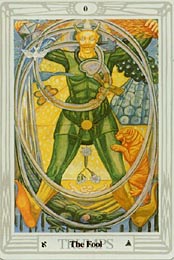 A recent post on the worldview of contemporary postmodern liberalism was kindly linked by Gerard Vanderleun over at American Digest. In his link post, a commenter left the following missive:
A recent post on the worldview of contemporary postmodern liberalism was kindly linked by Gerard Vanderleun over at American Digest. In his link post, a commenter left the following missive:
The essay would have value if there were absolutes. Never have been, never shall be. Our standards of behavior are devised by us, and used or misused by us. We decide which is good and which is evil, and in every case we are right and wrong at one and the same time.
Each of our rules and regulations is enforced through agreement, and through coercion. The wise among us agree to follow the laws because it makes for a calmer, safer life. The fools among us must be made to follow those same laws because they haven’t the wisdom to see the necessity. And this speaks of those ordinances that do make sense.
Those that do not have to be enforced through coercion more often than not because they really don’t make any sense. And there are times when our rules make more or less sense than other times because circumstances differ.
We are responsible for our laws, and for our adherence to them. Our legislation being wise is to our credit. Our legislation being cruel is to our shame. Nobody else can remove that charge from our shoulders.
Now, I take no issue with this gentleman personally; he is doubtless a bright fellow, well-educated in our institutions of higher learning, where professors emeritus emote their postmodern erudition in the lofty ephemeral ethers, far removed from the dross of desperately-ignorant humanity. He is more to be pitied than censured; he has, after all, been taught not to think. But he serves herein a useful purpose, insofar as his comment exemplifies the mindset of those who eschew the idea of absolutes — which assertion is the very metaphysical mortar of secular postmodernism.
I find it interesting that most every argument rejecting absolutes contains within its very language and structure, not to mention its premises, a framework of absolute assertions. And our subject does not disappoint: tossing around terms like “wise” and “fools” and “shame” and “credit”, qualitative words without meaning when there is no transcendent standard against which to measure them. What is shame if not the humiliation of rejecting an absolute good? Who is wise, and who a fool, if there is no standard of enduring and unchangeable wisdom by which to categorize one thusly? The lines of their straightedge are random and irregularly spaced — if there are measuring lines at all — yet they carefully measure and mark off “progress”, confident they have measured accurately. There is, of course, the inevitable rejoinder to all such foolishness which asks, “Are you absolutely sure there are no absolutes?” But beyond this childish rebuttal — childish, not in the sense of silliness or immaturity, but rather of unvarnished simplicity — there lies an even more evident and profound incoherence which can be discerned — from which a not-so-evident proposition emerges from the heart of anti-absolutism.
It is impossible to function as a human being in society without the concept of transcendent absolutes, even if this foundational principle is unrecognized or denied. We as humans do not simply move as pack animals, driven by instinct and primal drives, but are by our very nature creatures of judgment. We are constantly comparing, evaluating, appreciating or depreciating everyone and everything around us. The food is either tasty or awful; the woman is attractive or homely; the music is beautiful or grating; the weather is warm and pleasant or cold, wet, and miserable. Of course, some of these judgments are self-referential: the food tastes good to us, or bad to us; we prefer rock music to Rachmaninoff, while others may differ. Thus to some degree, we individually determine the standard against which we measure objects apart from ourselves. Yet even there it is possible to compare our preferences to a fixed standard: is slasher rock not discernibly different in quality from a Bach fugue?
But within the realm of human interactions, writ large as communities, societies, nations, and cultures, judgments about the outside world become collective, embodied in law and cultural and social strictures. Behavior which is objectionable to some is desirable to others; that which some find beneficial others find harmful. It is at this level of community and human interactions where some overarching determination or standard against which interpersonal behavior is measured becomes utterly necessary if we are to avoid a society capricious in its justice or cruel in its enforcement.
The anti-absolutist posits this standard in the consensus of the group, be it tribal, community, or society. The society at large, whatever its dimensions, determines that certain behavior is acceptable or unacceptable, and enforces the standard through collective coercion or force. While this seems plausible at first glance, it almost immediately runs into problems with the de facto use of absolutes. What standard will the collective mind of a society choose? Is it simply the standard of survival? Is it a collective self-gratification? Self-interest alone? And how can it be a standard at all without becoming, to greater or lesser degree, a transcendent absolute?
If, as our commenter suggests, we decide for ourselves what is good and what is evil, what is right and what is wrong, are these standards not infinitely malleable by their very nature? Such a philosophy of law is nothing more than the tyranny of the masses, the rule of the mob. For a society may agree by consensus that certain members of the society are inferior by nature, or should be exterminated, or have their possessions confiscated, their daughters raped, their members sold into slavery. Such societies are not mere abstract entities, but stark historical realities, evident in gulags, ethnic cleansings, and rape rooms to which even our most recent decades testify. Such a philosophy in its purest form is the will to power; those who gain dominance, either in number or by force, determine the standard against which all will be judged.
The notion that such a standard is invariably beneficial to a society or culture is ludicrous in the light of history. One need look no further than the 20th century, where the social consensus arising out of pathologies such as Nazism, Marxism, and the emperor worship and militarism of Japan, wrought horrors upon not only the world, but especially on the societies which themselves embraced these pathological standards. That German militarism and anti-Semitism was profoundly destructive to the very society which engendered these ideas and standards is self-evident; ask the citizens of Hiroshima how Japan’s imperialistic and fanatical militarism panned out.
Yet the world of the anti-absolutist one cannot form a judgment about any such self-evident evils. It cannot say that Nazism and the Holocaust were evil — they can only say that by their own standards, self-engendered and not universal, that such abominations are different. The inevitable moral indifference arising from such a philosophy runs counter to every fiber of the human spirit. We cannot say such things are evil if we cannot reference them against an absolute standard arising above, and transcending, any consensus formed only by a society.
Our very language is steeped in the vocabulary of absolutes — it is impossible to communicate without them. Good and evil, right and wrong, justice and injustice, wisdom and foolishness: these concepts are universal, ubiquitous, and unresectable from language and thought, across all cultures and civilizations.
The consequences of the rejection of absolutes, fully embraced, are nothing short of anarchy — or in its stead, tyranny. There can be no true justice, for justice appeals to a standard above the law, and thus judges not only behavior contrary to law, but the law itself. Absent a transcendent moral absolute, there is no limit to the granularity at which arbitrary determinations of good and evil, right and wrong, may occur. it is a recipe for tribalism at best, as competing groups determine their own rules, rejecting those of other groups, large or small, which run contrary to their perceived needs or desires. The inevitable conflict between tribal standards can bring nothing but perpetual conflict or isolation.
Those who claim to reject absolutes do not in reality reject all absolutes. There is never a quibble about the law of gravity, or the laws of nature, or those of nuclear physics or astronomy. Were they consistent in their philosophy, they would reject the term “law” (which implies an underlying transcendent; there is, after all, no laws without law-givers), and instead describe what their metaphysics mandates: that seemingly predictable behavior is no more than random coincidence; the electron may fall into the nucleus at any time, ending this existence as dramatically and as randomly as it came into being. As Chesterton said, “They feel that because one incomprehensible thing constantly follows another incomprehensible thing the two together somehow make up a comprehensible thing.”
At the very heart of a philosophy of deterministic, self-engendered moral standards stands the individual. The rejection of moral absolutes is nothing more than radical individualism broadcast across society — the notion that we are the sole arbiters of our behavior and morality, the we alone determine what is right and what is wrong. As a corollary, there is another assumption underlying this one: that others should bear the consequences, especially adverse consequences of our actions. Those who reject moral absolutes gravitate to a nihilistic narcissism, where there are rights but no responsibilities, demanding freedom to act as they please without thought for anyone else, all the while demanding that others rescue them from wreckage their behavior has wrought.
This battle of worldviews lies at the very heart of our culture wars, of the endless societal conflicts engendered over abortion, or religion in the public square, or the status of heterosexual marriage, or unrestricted sexual license, or any one a host of other seemingly irreconcilable culture clashes which saturate and sour our daily lives. It is a take-no-prisoners battle, for there is no middle ground, no comfortable compromise which will bring peace and harmony. It is a battle to the death, a battle not only of the mind but of the heart.
It is, above all, about bending the knee, a battle for the soul: we will submit to the absolute, or destroy ourselves in dark delusion denying it.
It’s long past time we choose which it will be.
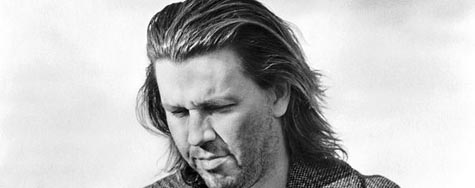
 A recent post on the worldview of contemporary postmodern liberalism was kindly linked by Gerard Vanderleun over at
A recent post on the worldview of contemporary postmodern liberalism was kindly linked by Gerard Vanderleun over at  Donald Sensing has a
Donald Sensing has a 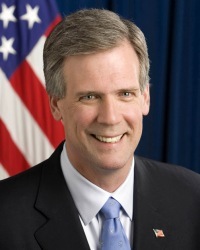
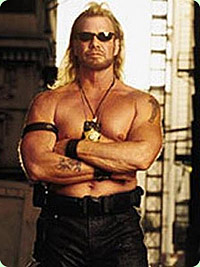
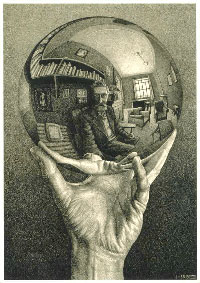 Often in the sturm und drang of a world gone mad, there comes, through the chaos and insanity, some brief moment of clarity. Such times pass by quickly, and are quickly forgotten — as this brief instance might have been, courtesy of my neighboring bell weather state of Oregon: (HT:
Often in the sturm und drang of a world gone mad, there comes, through the chaos and insanity, some brief moment of clarity. Such times pass by quickly, and are quickly forgotten — as this brief instance might have been, courtesy of my neighboring bell weather state of Oregon: (HT: 
 On a
On a